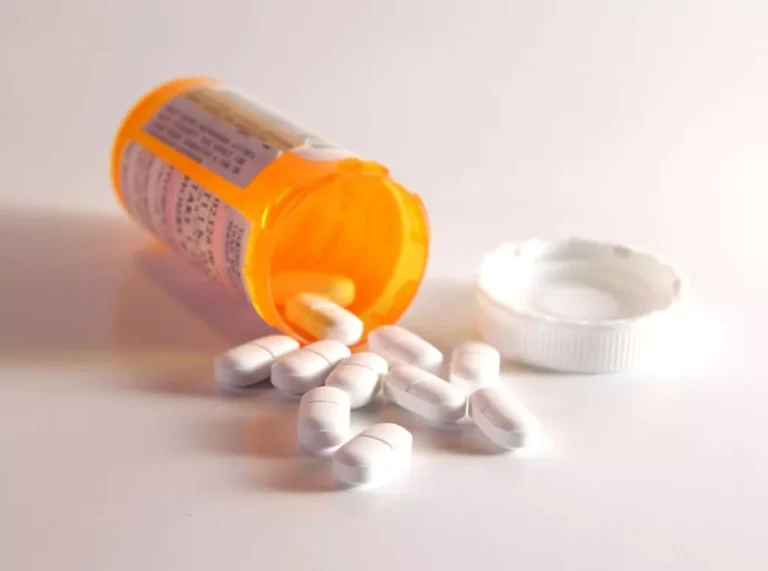
This enlargement can also lead to increased sebum production, making the skin appear oily. Managing oil production through appropriate skincare can help in reducing some of these symptoms. An alcoholic nose is not a true diagnosis of alcoholism or even a sign of it in many cases. As stated earlier, why do alcoholics have weird noses the medical definition of an alcoholic nose is rhinophyma.
- If there is insufficient alcohol dehydrogenase enzyme in the body, the consumer is likely to become flushed.
- Finally acne rosacea advances to late stage rosacea, and rhinophyma is an aspect of this.
- When someone abuses alcohol and has enlarged vessels, their skin may begin to flush or redden.
- Rhinophyma has historically been referred to as alcoholic nose due to the incorrect belief that alcohol consumption may lead to the condition.
- Additionally, repeated episodes of flushing and swelling can exacerbate existing skin conditions, leading to further complications.
Why Do Alcoholics Have A Purple or Red Nose?
Sometimes, this can include relying on ablative lasers or electrical currents (a treatment known as diathermy) to help remove excess tissue. If you develop rhinophyma, your nose may appear red, large, and even bumpy or bulbous. The visual side effects are most obvious on the tip and lower part of the nose, since the actual bone structure is not affected by the condition. However, not everybody will experience a red face when drinking, and not everybody that does is an alcoholic. However, rhinophyma can make normal breathing through the nose a challenge.
BlueCrest Counseling Center
- Rosacea is a chronic skin condition that affects the blood vessels in the face, leading to a flushed appearance of the facial skin.
- While rhinophyma is often dubbed “alcoholic nose,” the reality is that it’s a type of rosacea — meaning that heavy drinking isn’t actually linked to it.
- If your skin reddening is slight or temporary, you might consider white wine or spirits in moderation to reduce the impact.
A spreading redness could move across the cheeks, nose, and other areas with blood vessels close to the skin. Like rhinophyma, rosacea can affect anyone including those individuals who have darker skin as well as children and teens. Additionally, heavy alcohol use can also dehydrate the body, including the nasal membranes, making them more fragile and prone to bleeding.
Treatment Options for Alcoholic Nose

In surgery, the nose can be reshaped and certain layers of excess skin can be removed that obstruct airways. Surgery for rhinophyma is quite common and is seen as one of the better avenues for improving a patient’s quality of life. However, there are several treatments that you can try to control symptoms and reduce visible redness. If you are curious about the options that are available to you, you should consult your primary care physician and see what kinds of treatments they recommend. However, it’s Sober living home always important to keep in mind that rhinophyma ultimately manifests itself as a side effect of rosacea.

Treatment for rhinophyma can vary depending on the severity of the condition. In mild cases, topical treatments may be sufficient to improve the appearance of the nose. Fields, an early 20th-century American actor known for his heavy drinking, who called the bumps on his enlarged nose “gin blossoms”. Early intervention and proper management are key to preventing the progression of rosacea into rhinophyma. If you suspect you have rosacea or rhinophyma, consult with a dermatologist to explore your treatment options and develop a management plan tailored to your needs. Using gentle, non-irritating skincare products can help manage rosacea symptoms and prevent flare-ups.
Can I Still Drink Alcohol with Rosacea?

However, non-drinkers can also get Rhinophyma, which is why many researchers are working to debunk the myth that the condition is just another sign of alcoholism. Sunshine Behavioral Health strives to help people who are facing substance abuse, addiction, mental health disorders, or a combination of these conditions. It does this by providing compassionate care and evidence-based content that addresses health, treatment, and recovery.
Alcoholic nose, known by its clinical name, rhinophyma, is a condition that causes the nose to become bumpy, swollen, and red in appearance. Someone who has a bulbous, swollen red nose may suffer from incorrect judgments and assumptions about their character and substance use habits. While “alcoholic nose” is not a medical condition requiring treatment, rhinophyma can be treated. The main treatment option for rhinophyma is surgery; however, there are some medications that may provide a small degree of help. Rosacea affects the nose more in men and the cheeks more in women, which makes men much more likely to get rhinophyma than women.
Mixing Adderall and Alcohol: Risks and Precautions
Antibiotics from the local doctor can help and in resistant cases there are dermatologist restricted retinoids (like Vitamin A) available. Cortisone creams are best avoided as these can worsen the condition and even in some people cause a rosacea-type of rash. If rosacea can be controlled at an early stage then it is unlikely to progress to rhinophyma. We’re not certain about why it mostly affects men, but think likely causes include that they are more likely to work outside, and less likely to seek treatment for rosacea.
However, managing rhinophyma requires a comprehensive approach that addresses various contributing factors, including genetics and environmental triggers. Rosacea is a chronic skin condition and disorder that causes the skin to appear different in texture, pigment, and size than normal skin. Though rhinophyma is not caused by alcohol misuse, if you or a loved one are concerned about your drinking and other potential health effects, help is available. Take our alcohol assessment to assess your drinking habits or contact a treatment provider to explore your treatment options. Rhinophyma is believed to be a rare but severe manifestation of inflammatory rosacea.